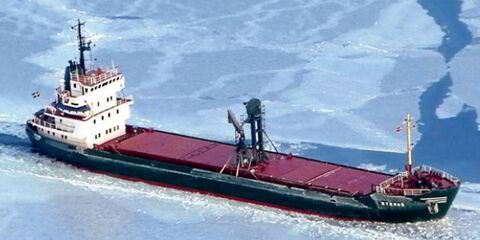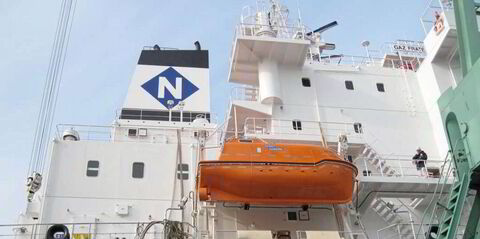The Paris Memorandum of Understanding on port state control (Paris MoU) is preparing to end the supply of inspection data to ship safety vetting agency RightShip, and the speculation is that the move is in response to criticism of the company’s new ratings system.
From next March, it is understood the Paris MoU is considering no longer supplying its port state control (PSC) data to market information company IHS Markit, which sells it on to a number of end users including Melbourne-based RightShip.
It is being suggested the motive behind the move is to prevent RightShip from using the data.
No decision has been announced by the Paris MoU.
The alleged measures emerged from a LinkedIn article written by former PSC officer Rod Johnson, who is marine risk management director at RSA Global Risk Solutions.
Johnson wrote: “The Paris MoU member states have agreed to stop providing data at source to industry and publish only via parismou.org and equasis.org. Why? Because ratings providers like RightShip are causing some difficulty with prospective charterers and traders.”
RightShip chief executive Warwick Norman tells TradeWinds it is his understanding the data tap from the Paris MoU is to be turned off next year, although he has not been informed directly.
He says it comes as a surprise as he has not been involved in any dialogue with the Hague-based PSC organisation, which, he adds, has never expressed any problem with the way the data is being used by RightShip in over 16 years.
Paris MoU secretary general Richard Schiferli points out that the Paris MoU does not supply data directly to RightShip and its PSC data is free for anyone to use from the Paris MoU website.
He confirms however that the provision of data to IHS Markit is under discussion.
The raw PSC data is one of the critical components of RightShip’s new digitalised big data predictive analytics safety vetting tool Qi.
While the inspection data is still available on the official Paris MoU-approved sites, the input of raw data is critical to the speed and accuracy of Qi.
Norman says algorithms will have to be rewritten and some information might have to be accessed from owners.
He adds that there are potentially big negatives for safety as a result of the data cut-off. The vetting process and safety assessments are likely to take longer and good performing ships could be unnecessarily downgraded, he explains.
“We might end up treating owners with good performance as if they were bad owners,” he said.
Norman also points out that the move goes against the principle of transparency, which was key to Europe-wide initiatives on opening PSC information to the public in the 1990s and against the current European Union policy to open up data access streams.
“I’m not sure how this fits in with the Paris MoU’s vision of safety and it seems to go against the European policy on opening up data,” he said.
The assumption is that the decision has been reached by the Paris MoU because owners have been complaining to EU member states about their safety ratings or that some European national flags are even unhappy about their own safety performance ratings under Qi.
Qi has proven controversial with owners since it was introduced last year with some complaining directly to TradeWinds about being unfairly downgraded and suffering commercial loss as a result.
A common gripe is that Qi’s algorithms downgrade ships automatically when, even in cases when shipowners claim there should be no modification applied.
As earlier reported in TradeWinds, there was another debate on LinkedIn. An owner complained that he had been downgraded under Qi for following good practice and reporting a mechanical failure, whereas he would have got away with it had he stayed quiet over the fault.
Another possibility that has been suggested is that the Paris MoU might see RightShip as a competitor and wants to protect its data for that reason.
None of the other major PSC regions, the Tokyo MoU or the US Coast Guard, are considering removing the information.
The Paris MoU is one of the world’s largest PSC regions with 27 member countries carrying out over 18,000 inspections annually.
RightShip is the shipping industry’s largest safety vetting company and is owned by BHP Billiton, Rio Tinto and Cargill. Its stated goal is to help the shipping industry avoid preventable accidents by providing rapid and consistent analysis and advice.



